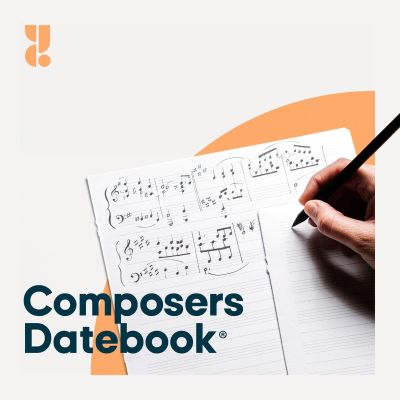Composers Datebook™ is a daily two-minute program designed to inform, engage, and entertain listeners with timely information about composers of the past and present. Each program notes significant or intriguing musical events involving composers of the past and present, with appropriate and accessible music related to each.
Beethoven symphonies and 20th century politics
Synopsis
No four notes in classical music are more familiar than those that open Beethoven’s Fifth Symphony. Their powerful psychological resonance has often extended beyond music into overtly political contexts.
For example, on today’s date in 1941, the British Broadcasting Company began using those notes as a theme for radio shows beamed across Europe to boost morale during the Second World War. In Morse Code, the “dit-dit-dit-DAH” that opens Beethoven’s Fifth stood for the letter “V,” which in turn stood for “victory.” At the end of the war, in celebratory radio concerts on V-E Day and V-J Day, Arturo Toscanini conducted performances of Beethoven’s Fifth and Third symphonies.
Some decades later, Beethoven’s Ninth was performed at the end of the Cold War, when, after the fall of the Berlin Wall, Leonard Bernstein conducted moving performances in East and West Berlin utilizing an orchestra with members drawn from Eastern and Western Europe, Israel, and the U.S.
For those performances, which were recorded and broadcast around the world, Bernstein asked the chorus to substitute the word “Freiheit” (Freedom) for the word “Freude” (Joy) in the choral setting of Schiller’s poem, “Ode to Joy,” which closes Beethoven’s Ninth.
Ludwig van Beethoven (1770 - 1827): Symphony No. 5 & Symphony No. 9 (Vienna Philharmonic; Simon Rattle, cond.) EMI 57445
